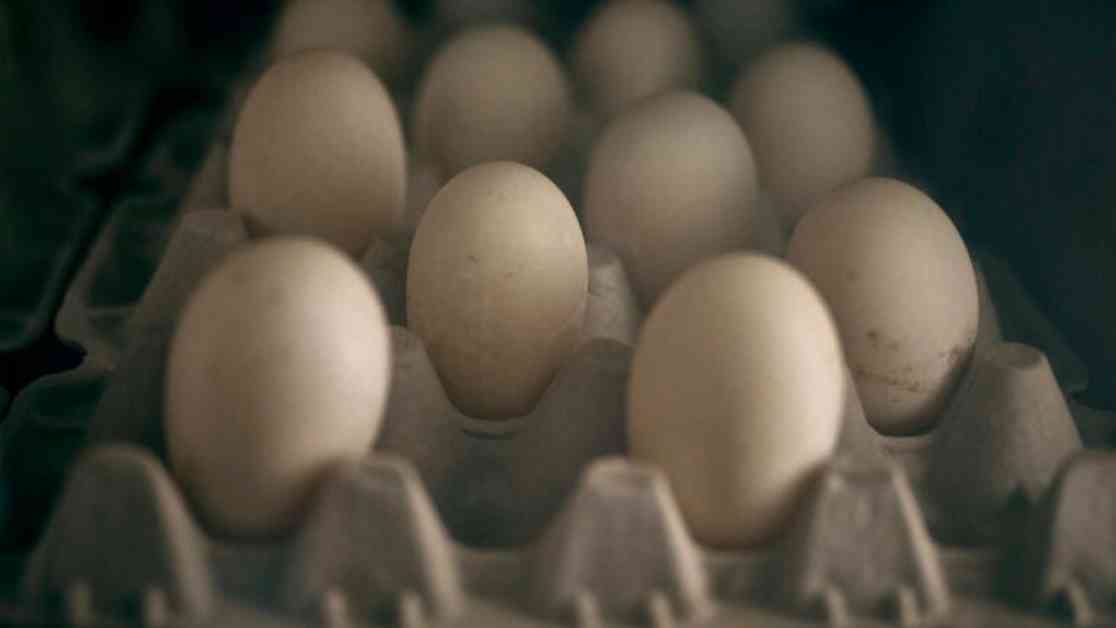Amid an alarming surge in bird flu cases, Massachusetts state and health officials confirmed the widespread presence of the virus. The grim reality of this declaration was starkly illustrated when a bald eagle in Townsend, Mass., was euthanized after testing positive for bird flu. The infected eagle displayed distressing symptoms like neurological deficits and sudden head movements, leading experts to make the difficult decision to prevent further transmission of the disease.
Raptor Tales Rescue of Shrewsbury, a trusted organization in the field, reported that this particular bald eagle was just one of several birds in Massachusetts to fall victim to the ongoing bird flu outbreak. Jess Zorge, President of Raptor Tales Rescue, expressed deep concern over the escalating numbers of avian flu cases, noting that the situation was unprecedented in her experience. The organization has been actively managing the crisis, having confirmed three positive bird flu cases in a mere 10-day span. The urgent need to address this issue was further emphasized by the strain on personal protective equipment faced by the rescue team.
Bird flu, a well-documented threat in the avian population globally, poses a significant risk to raptors, waterfowl, and other wild birds. MassWildlife underscores that not only birds are susceptible to infection, as wild mammals can also contract the virus. The disease can easily spread through various means, such as droppings, fluids, secretions, and even consumption of contaminated carcasses. What makes this contagion particularly insidious is that birds can carry the virus without any visible symptoms, making early detection and containment a formidable challenge.
Signs of Infection and Prevention Measures
Recognizing the symptoms of bird flu in infected birds is crucial for prompt intervention. Common signs include sudden death, purple discoloration, and loss of coordination, as outlined by the American Veterinary Medical Association. To mitigate the spread of the virus, Jess Zorge emphasized the importance of discouraging large bird gatherings by refraining from feeding them in the wild. Additionally, pet owners are advised to keep their cats away from wild birds, as felines are highly vulnerable to the illness. While the current public health risk is deemed low by the CDC, precautionary measures are essential given the reported human cases of bird flu in the United States.
State health officials have reassured the public that human infections from bird flu are rare, with most cases being mild and linked to direct exposure to sick animals. However, the repercussions of the bird flu outbreak extend beyond the avian population. The resulting egg shortage has prompted grocery stores to implement restrictions on egg purchases, underscoring the broader impact of this health crisis on consumers.
Geographical Spread and Recent Outbreaks
The recent surge in bird flu cases in Massachusetts is not an isolated incident. Since 2022, the state has grappled with sporadic bird flu outbreaks among wild birds. However, the situation took a concerning turn when health officials declared the virus as “widespread” and likely present even in areas without confirmed cases. In a grim sequence of events, more than 60 Canada geese, swans, and ducks in Plymouth succumbed to bird flu in January, setting off alarm bells among experts.
The gravity of the situation was further underscored by the closure of D.W. Field Park in Brockton and Avon due to a potential avian flu outbreak, following reports of multiple dead swans and Canada geese. The Town of Plymouth also took swift action by removing 16 birds between February 5 and 11, signaling the urgency of containing the spread of the disease. State health officials are urging the public to report any observations of five or more deceased birds at a single location to MassWildlife, emphasizing the need for collective vigilance in combating this pervasive threat.
Lindsay Shachnow, a dedicated journalist covering general assignment news for Boston.com, has been at the forefront of reporting on the unfolding bird flu crisis in Massachusetts. With a keen eye for detail and a commitment to delivering timely updates, Shachnow’s comprehensive coverage serves as a vital resource for readers seeking to stay informed about this evolving public health concern. Stay tuned for the latest developments on the bird flu outbreak and its impact across New England.






